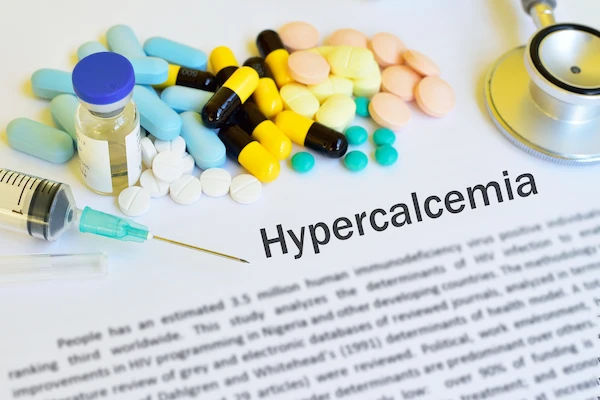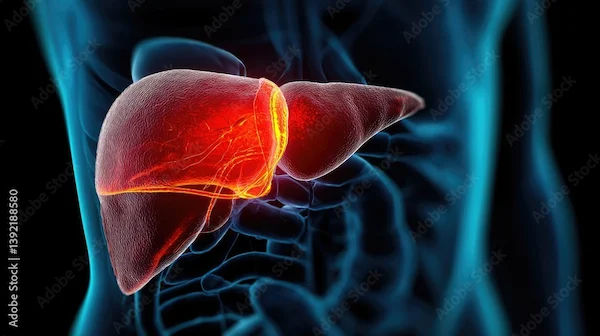Chapati Calories and Nutrition Facts
Discover the calories and nutrition facts of chapati (roti), including carbohydrate, protein, and fat content per serving. Learn its health benefits and ideal portion sizes.

Written by Dr. Shaik Abdul Kalam
Reviewed by Dr. Vasanthasree Nair MBBS
Last updated on 22nd Jul, 2025

Introduction
Chapati, also known as roti, is a staple food in many Indian households. Made from whole wheat flour, it is a simple yet nutritious flatbread that pairs well with vegetables, lentils, and curries. If you're curious about its calorie count, nutritional benefits, and how it fits into a healthy diet, this article will guide you through everything you need to know.
Calories in Chapati
A standard-sized chapati (about 6 inches in diameter) made from whole wheat flour contains approximately:
70-80 calories (depending on thickness and size)
15 grams of carbohydrates
3 grams of protein
0.4 grams of fat
2 grams of fibre
Since chapatis are low in fat and rich in fibre, they are a healthier alternative to refined flour-based bread like naan or white bread.
Nutritional Benefits of Chapati
Chapati is not just about calories—it offers several health benefits:
1. Rich in Complex Carbohydrates
Whole wheat chapatis provide slow-digesting carbs, which help maintain steady blood sugar levels and keep you full for longer.
2. High in Fibre
The fibre in whole wheat aids digestion, prevents constipation, and supports gut health.
3. Good Source of Protein
Chapati contains plant-based protein, which is essential for muscle repair and overall body function.
4. Packed with Essential Vitamins & Minerals
Iron: Helps prevent anaemia.
Magnesium & Phosphorus: Supports bone health.
B Vitamins (B1, B2, B3, B6): Boosts energy and metabolism.
5. Low Glycemic Index (GI)
Unlike refined flour, whole wheat chapati has a low GI, making it suitable for diabetics when eaten in moderation.
How Does Chapati Compare to Other Breads?
Chapati is clearly the healthier choice compared to naan, paratha, or white bread due to its lower calorie count and higher fibre content.
Can Chapati Help with Weight Loss?
Yes! Chapati can be part of a weight-loss diet if consumed in moderation. Here’s why:
Keeps You Full Longer: The fibre prevents overeating.
Low in Fat: Unlike paratha or buttered bread, chapati has minimal fat.
Balanced Nutrition: Provides energy without excess calories.
Tips for Weight Loss with Chapati
Stick to 1-2 chapatis per meal.
Pair with protein-rich foods (dal, paneer, chicken) and fibrous veggies for a balanced meal.
Avoid excessive ghee or butter.
Consult Top Dietitians For A Personalised Diet
Is Chapati Good for Diabetics?
Yes, but portion control is key. Since whole wheat chapati has a low glycemic index, it doesn’t cause sudden blood sugar spikes. However, diabetics should:
Limit to 1-2 chapatis per meal.
Combine with protein and fibre (like dal and sabzi) to slow digestion.
Avoid pairing with high-carb sides (potato curry, sugary chutneys).
How to Make Chapati Healthier?
1. Use 100% Whole Wheat Flour (Atta): Avoid mixing refined flour (maida).
2. Add Multigrain Flour: Mix jowar, bajra, or ragi for extra nutrients.
3. Control Oil/Ghee: Use minimal oil while cooking.
4. Pair Wisely: Combine with dal, vegetables, or lean protein for a balanced meal.
Myths About Chapati
Myth: "Chapati makes you fat."
Fact: Excess calories from ghee or overeating cause weight gain, not chapati itself.
Myth: "Diabetics should avoid chapati."
Fact: Whole wheat chapati in controlled portions is safe for diabetics.
Myth: "White flour chapati is the same as whole wheat."
Fact: Refined flour lacks fibre and nutrients—always choose whole wheat.
Conclusion
Chapati is a nutritious, low-calorie, and fibre-rich food that fits well into a balanced diet. Whether you're managing weight, diabetes, or just aiming for a healthier lifestyle, chapati is a great choice when eaten mindfully.
If you have specific health concerns like diabetes, weight management, or digestive issues, consult a nutritionist for a customized meal plan. You can easily book a diet consultation or health check-up on Apollo 24|7 for expert guidance.
Consult Top Dietitians
Consult Top Dietitians For A Personalised Diet

Dr Venkata Naga Sai Tribhushan Rambhatla
General Physician
3 Years • MBBS
Bengaluru
PRESTIGE SHANTHINIKETAN - SOCIETY CLINIC, Bengaluru

Ms Manisha Patil
Dietician
25 Years • B.A.S.M., M Sc Food & Science and Nutrition , ADND. CCHA . PGDHM
Pune
Apollo Clinic, Nigdi, Pune

Neelanjana J
clinical nutrition
3 Years • Bsc., Msc. Nutrition and Dietetics.
Bengaluru
Apollo Clinic, JP nagar, Bengaluru

Ms. Soma Saha
clinical nutrition
17 Years • B.Sc. - Home Science (Food & Nutrition), M.Sc. - Home Science (Food & Nutrition)
Kolkata
Dr Utsa Basu Clinic, Kolkata
(50+ Patients)

G. Divya
Dietician
5 Years • MSC. in Dietetics and Applied Nutrition
Bengaluru
Apollo Clinic, Koramangala, Bengaluru
Consult Top Dietitians

Dr Venkata Naga Sai Tribhushan Rambhatla
General Physician
3 Years • MBBS
Bengaluru
PRESTIGE SHANTHINIKETAN - SOCIETY CLINIC, Bengaluru

Ms Manisha Patil
Dietician
25 Years • B.A.S.M., M Sc Food & Science and Nutrition , ADND. CCHA . PGDHM
Pune
Apollo Clinic, Nigdi, Pune

Neelanjana J
clinical nutrition
3 Years • Bsc., Msc. Nutrition and Dietetics.
Bengaluru
Apollo Clinic, JP nagar, Bengaluru

Ms. Soma Saha
clinical nutrition
17 Years • B.Sc. - Home Science (Food & Nutrition), M.Sc. - Home Science (Food & Nutrition)
Kolkata
Dr Utsa Basu Clinic, Kolkata
(50+ Patients)

G. Divya
Dietician
5 Years • MSC. in Dietetics and Applied Nutrition
Bengaluru
Apollo Clinic, Koramangala, Bengaluru




.jpg)